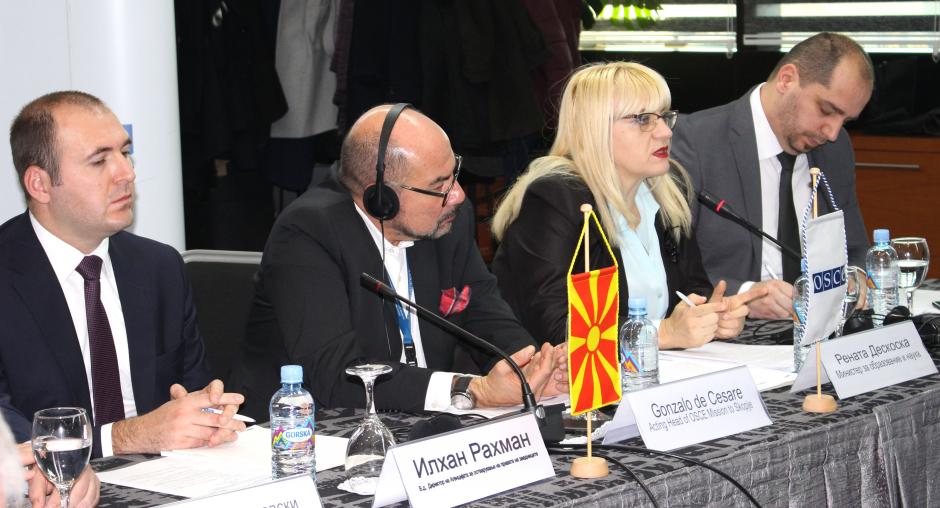OSCE-supported roundtable discussion on advancing rights of smaller communities, focusing on education, culture and media held in Skopje

SKOPJE, 6 December 2017 – Senior representatives of ministries in charge of education, culture, and information society and administration came together today in Skopje to discuss ways to further advance the rights of smaller communities. The discussion, organized by the OSCE Mission to Skopje, in co-operation with the national Agency for the Community Rights Realization, aims at encouraging dialogue on equitable representation and on improving community rights in education, culture, public administration and media.
“The culture of smaller communities is a great wealth for our country, it deserves respect and attention. Culture is an instrument, through which diversity is best articulated and perceived,” said Minister of Culture Robert Alagjozovski. “This meeting today is a great opportunity not only to evaluate what has been done so far, but also to find new approaches and ways to advance the rights and seek progress for all citizens equally.”
Deputy Minister of Information Society and Administration Aleksandar Bajdevski said: “In terms of equitable representation of the smaller communities in the country, I would like to highlight that a mechanism to implement the constitutional principle for equal and equitable representation of the communities was established in every institution in the public sector.”
Head of the Human Dimension Department of OSCE Mission to Skopje Gonzalo de Cesare said: “We, at the OSCE, believe that safeguarding individual and community rights, respecting diversity, promoting the cultural and linguistic riches of the country and encouraging inter-cultural interaction are vital for an inclusive and just society for all.”
Acting Director of the Agency for Community Rights Realization Ilhan Rahman said: “The Agency will contribute to creating an equal society for all, where members of smaller communities will be equal citizens. Our aim is to improve the education in the mother tongue of these communities, to improve equitable representation in the institutions, and to have functional newsrooms for the communities at the public broadcaster.”
